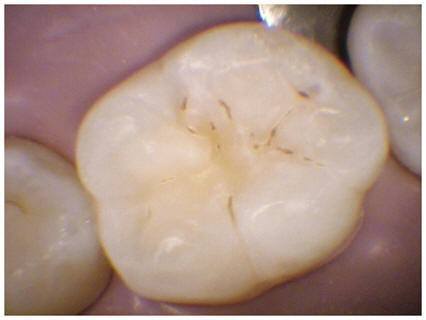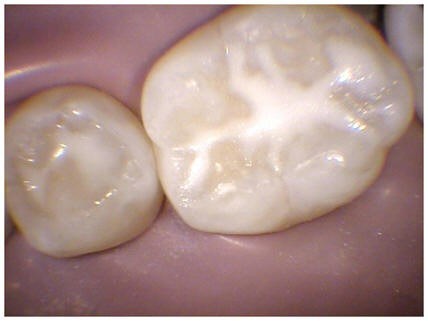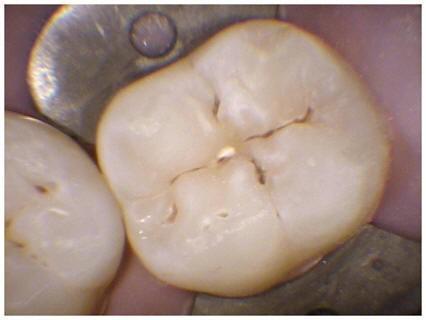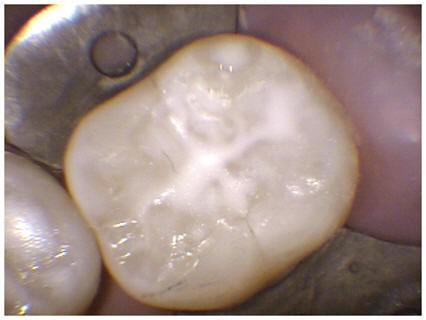What Is a Sealant?
A sealant is a clear or shaded plastic material that is applied to the chewing surfaces of the back teeth (premolars and molars), where decay occurs most often. This sealant acts as a barrier, protecting the decay-prone areas of the back teeth from plaque and acid.
Why Are Sealants Necessary?
When the back teeth are developing, depressions and grooves form in the chewing surfaces of the enamel. These irregularities are called pits and fissures. They are impossible to keep clean, because the bristles of a toothbrush cannot reach into them. Therefore, pits and fissures are snug places for plaque and bits of food to hide. By forming a thin covering over the pits and fissures, sealants keep out plaque and food and thus decrease the risk of decay.
Who Should Have Sealants Applied?
Children receive the greatest benefit from having sealants applied to their teeth, especially to newly erupted permanent teeth. Dr. EDward M. Amet recommends sealants for all children, even those who receive topical applications of fluoride or who live in communities with fluoridated water. Fluoride helps fight decay on the smooth surfaces of the teeth, but it is least effective in pits and fissures.
How Are Sealants Applied?
Each tooth takes only a few minutes to seal. First, the teeth that will be sealed are cleaned. The chewing surfaces are then etched (roughened) with a weak acidic solution to help the sealant adhere to the teeth. Finally, the sealant is brushed on the tooth enamel and allowed to harden. Some sealants need a special curing light to help them harden; others do not.
Do Sealants Need to Be Reapplied?
When the sealant is applied, finger-like stands penetrate the pits and fissures of the tooth enamel. Although the sealant cannot be seen with the naked eye, the protective effect of these stands continues. As a result, it may be several years before another application of sealant is needed. Reapplication of the sealant will continue its protection against decay and may save the time and expense of having a tooth restored. Sealants will be checked during your child’s regular dental visits with our prosthodontist to determine if reapplication is necessary.
The American Dental Association recognizes that sealants can play an important role in the prevention of tooth decay. When properly applied and maintained, they can successfully protect the chewing surfaces of your child’s teeth and, the risk of decay can be reduced or may even be eliminated!
We welcome you to contact Reconstructive and Implant Dental Center at 913-534-8801 today to learn more about dental sealants in Overland Park, Kansas, and to schedule a visit.





